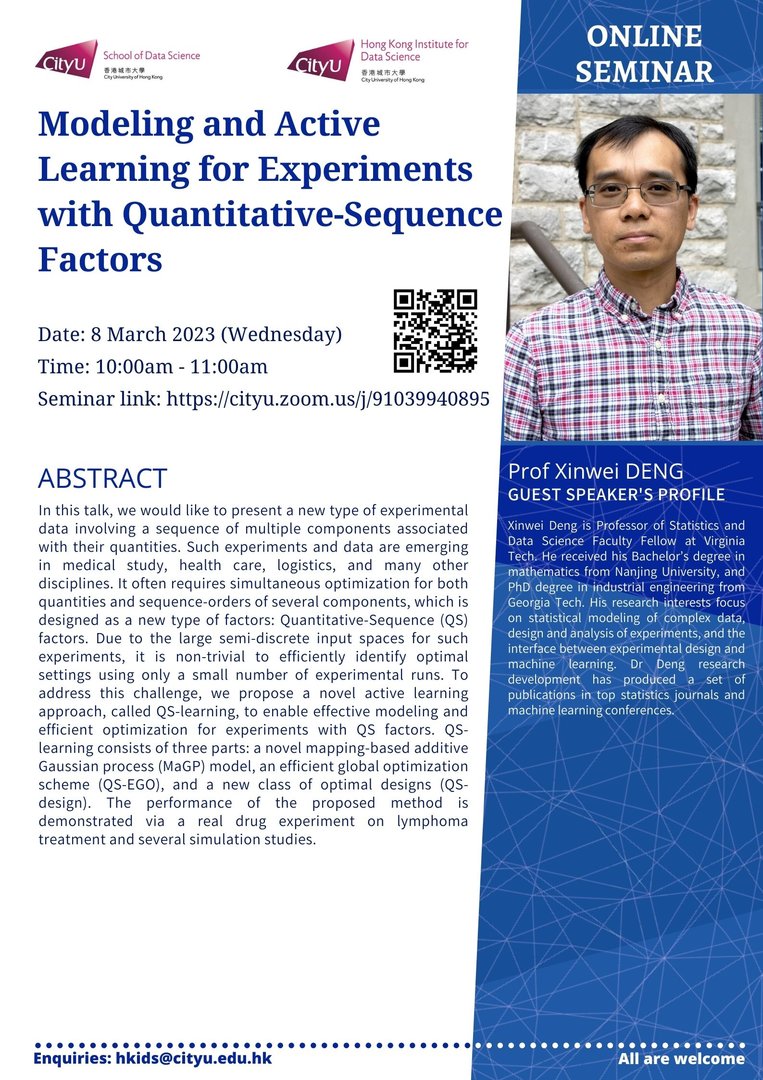
In this talk, we would like to present a new type of experimental data involving a sequence of multiple components associated with their quantities. Such experiments and data are emerging in medical study, health care, logistics, and many other disciplines. It often requires simultaneous optimization for both quantities and sequence-orders of several components, which is designed as a new type of factors: Quantitative-Sequence (QS) factors. Due to the large semi-discrete input spaces for such experiments, it is non-trivial to efficiently identify optimal settings using only a small number of experimental runs. To address this challenge, we propose a novel active learning approach, called QS-learning, to enable effective modeling and efficient optimization for experiments with QS factors. QS-learning consists of three parts: a novel mapping-based additive Gaussian process (MaGP) model, an efficient global optimization scheme (QS-EGO), and a new class of optimal designs (QS-design). The performance of the proposed method is demonstrated via a real drug experiment on lymphoma treatment and several simulation studies.
Speaker: Prof Xinwei DENG
Date: 8 March 2023 (Wednesday)
Time: 10:00am – 11:00am
Poster: Click here
Latest Seminar
Biography
Xinwei Deng is Professor of Statistics and Data Science Faculty Fellow at Virginia Tech. He received his Bachelor’s degree in mathematics from Nanjing University, and PhD degree in industrial engineering from Georgia Tech. His research interests focus on statistical modeling of complex data, design and analysis of experiments, and the interface between experimental design and machine learning. Dr. Deng research development has produced a set of publications in top statistics journals and machine learning conferences.